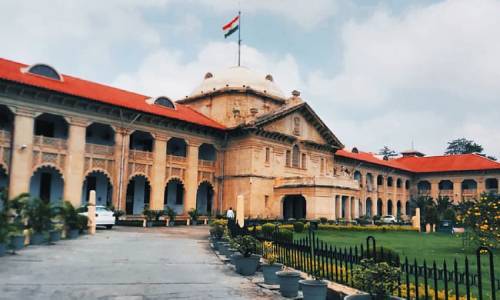
Case Title: Anjuman Intazamia Masazid Varanasi Vs Ist A.D.J. Varanasi And Others (Matters under article 227 No. - 3341 of 2017)
The Director General of the Archaeological Survey of India, New Delhi, has been asked to submit a personal affidavit on the subject of the ASI survey requested by the Varanasi Court by October 18 in the ongoing hearing before the Allahabad High Court concerning the dispute involving the Kashi Vishwanath temple and Gyanvapi mosque.
"Since the matter is of national importance and fact that the suit is pending before the trial Court since 1991, this Court hopes and trusts that the respondent No.7/the Director General, Archaeological Survey of India, New Delhi will comply with the order dated 12.09.2022 in its letter and spirit on or before the next date fixed in the matter, i.e., 18.10.2022,” the bench of Justice Prakash Padia ordered.
The DG was previously required by the High Court to submit her response by September 28. However, the Court was informed today that the director had been advised to take bed rest in anticipation of major surgical intervention because she was experiencing gynaecological health issues, and as a result, more time to submit the affidavit was requested on this basis.
The Court has now requested the DG ASI to submit her response by no later than October 18 after accepting the request. Here, it should be noticed that the Court has not asked the DG, or ASI, any particular questions.
Readers of this article may recall that the High Court requested affidavits from both the federal government and the state government when it suspended a contentious Varanasi Court order requiring an archaeological survey of the site to determine whether a Hindu temple was partially demolished to construct the Gyanvapi mosque in the 17th century by staying proceedings in the Kashi Vishwanath Mandir-Gyanvapi Masjid case last year.
The Uttar Pradesh Government has previously submitted an affidavit declaring that it would play no important part in the ASI survey and will solely be responsible for maintaining peace and order in this circumstance.
FACTS OF THE CASE
In essence, the Ancient Idol of Swayambhu Lord Vishweshwar and 5 Others and the Anjuman Intazamia Masazid, Varanasi has contested (before the HC) the petition brought before the Varanasi Court in the year 1991 requesting the restitution of the land on which the Gyanvapi Mosque sits to Hindus.
The Varanasi Court's decision to conduct an ASI survey last year was contested by the Anjuman Intezamiya Masajid Varanasi, and the High Court, in September of that year suspended that very order.
The petitioner (Anjuman Intazamia Masazid, Varanasi) initially filed an application under Order VII Rule 11(d) CPC for rejecting the plaint (of the Ancient Idol Of Swayambhu Lord Vishweshwar), but the contesting respondents argued before the Court that they did not press the same for a significant amount of time and instead chose to file a written statement in the plaint.
The respondent's attorney additionally contended that the Varanasi Court had framed the issues based on the lawsuit's pleadings. The attorney also claimed that the subject property, a temple dedicated to Lord Visheshwar, had been around since the Satyug era.
He further argued that because the contested building contains the Swayambhu Lord Visheshwar, Lord Visheshwar is an intrinsic element of the property in question.
The respondents have argued that because the religious character of the place of worship remained the same as it was on August 15, 1947, the provisions of the Places of Worship Act, 1991, cannot be applied, refuting the Majid committee's argument that the plaint should be rejected because it was barred by the provisions of the Places of Worship (Special Provisions) Act, 1991.
In related news, the Varanasi Court dismissed the Anjuman Islamia Masjid committee's argument (filed under Order 7 Rule 11 CPC) earlier this month challenging the maintainability of the lawsuit brought by five Hindu women (plaintiffs) seeking the right to worship within the grounds of the Gyanvapi Mosque.
According to District Judge Ajay Krishna Vishwesha, contrary to what the Anjuman Masjid Committee asserted, the Places of Worship (Special Provisions) Act, 1991, The Waqf Act, 1995, and the U.P. Shri Kashi Vishwanath Temple Act, 1983 do not prevent the plaintiffs' lawsuit (which manages Gyanvapi Masjid).

